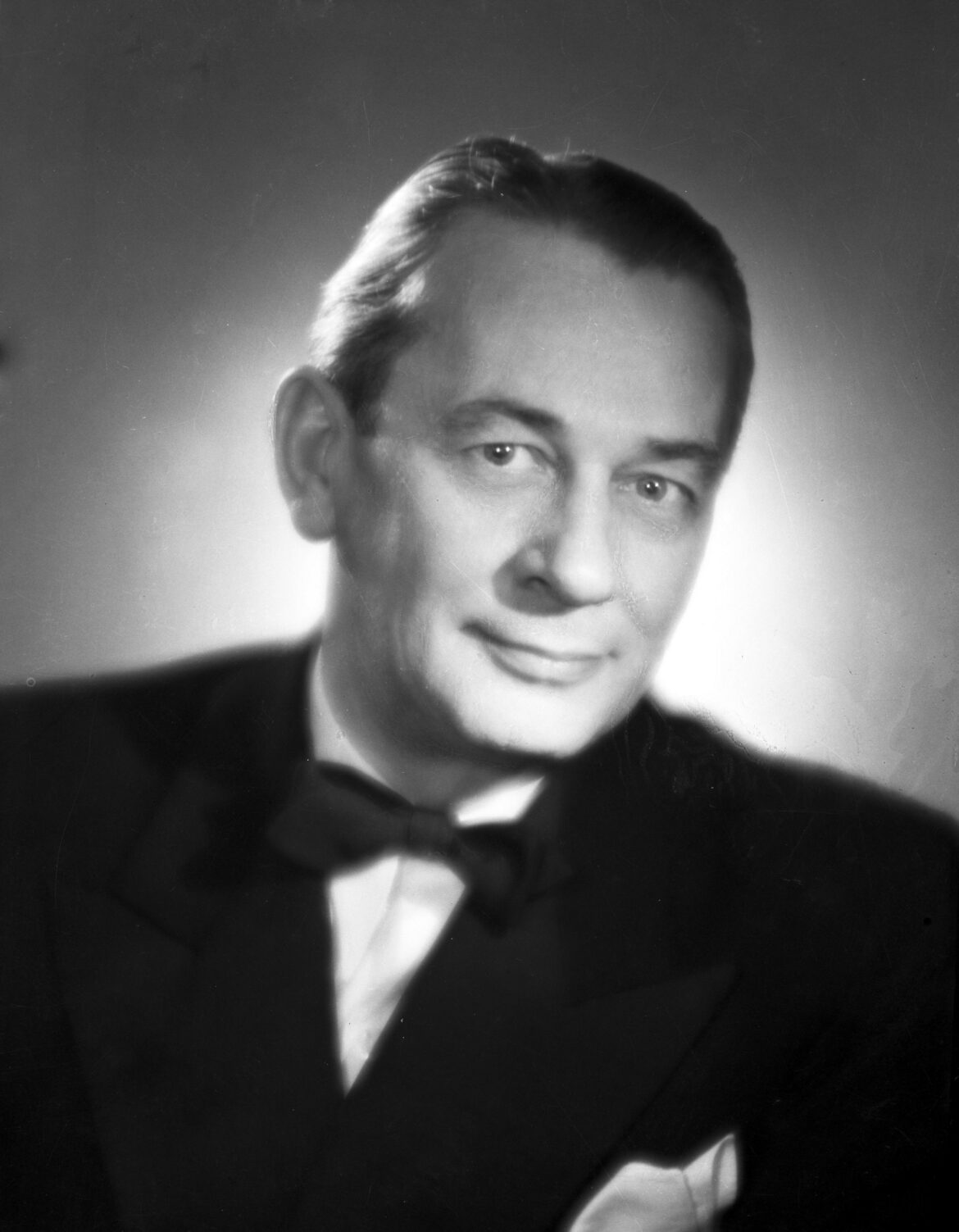He sang with a beautiful lyrical baritone. Mieczysław Fogg was a great Polish singer. However, not everyone knows that during the Second World War he fought for Poland and saved Jews.
Mieczysław Fogg (real name Fogiel) was born on 30 May 1901. His mother had a shop in Warsaw and his father worked on the railways. There, the future singer began his professional career as a cashier. His work was interrupted by being called up to the army. Fogiel fought in the Polish-Soviet War of 1920.
His turn to music
Fogg’s adventure with music began thanks to Ludwik Sempoliński, an outstanding Polish actor and director. In 1922, he heard the young man when he was singing in the choir at St. Anne’s Church in Warsaw. He approached him, delighted with his voice, and offered him further singing lessons at the Frédéric Chopin School of Music in Warsaw. Without hesitation, Fogg began studying under Jan Łysakowski.
Career in choir and solo
Fogg added splendour to baptisms with his voice and bid farewell to the dead singing. In 1928, he made his debut in the Dana Choir at the “Qui Pro Quo” theatre in Warsaw. With it, he gave concerts not only in Poland, but also in Germany, Scandinavia, Italy, and the United States. During this time, he also appeared in over 10 films and recorded 150 songs for the Odeon music label.
In 1934, he accepted a position as manager of a tenement house in Warsaw and later resigned from the railways. With this, he definitively closed his railway career, which was an attempt to fulfil his father’s ambitions.
In 1937, he won a nationwide Polish Radio competition for the most popular singer and began his solo career. The years 1938-1939 were a period of greatness for Fogg. He gave concerts in Poland and in the USA. His performance was broadcast by NBC television and many radio stations. He was the first Polish artist to perform in a television studio – this happened in London in 1939.
Music during the war
On 1 September 1939, the Second World War broke out. Germany invaded Poland and, in cooperation with the Soviet Union, began the bloodiest conflict in the history of the world.
At first, Mieczysław Fogg performed for the Polish army in Warsaw. However, when the German bombardment of the capital intensified, the musician decided to leave Warsaw for Lwów on 6 September. He returned there at the end of October and had to adapt to the new occupation reality. There, with the permission of the Polish independence underground, he performed in cafés where Poles were allowed to enter. At that time, the Germans occupying Poland allocated some public places, tram carriages and restaurants exclusively for their own use.
Fogg sang the occupation patriotic song ‘Beloved, I’ll be back’ in the ‘Cafe Bundo’ café. The Polish audience received it with unusual enthusiasm. This did not please the Gestapo (German secret police) officer who was present. The drunken German approached the singer and pointed a gun at him. Fogg took no notice because… he had a visual impairment. The woman accompanying the German took the gun away from him, so that no mishap occurred. Mieczysław Fogg, however, had to explain the incident during his interrogation at the Gestapo. As the Germans had their eye on him after this incident, so he gave up singing and started working as a waiter.
Helping Jews and conspiracy
During the Second World War, Fogg joined the Polish independence underground. He had the pseudonym “Ptaszek”. He also took part in the organisation of secret classes, a special system of education held in hiding from the occupants.
He fought in the largest anti-German armed uprising during the Second World War – the Warsaw Uprising (1 August – 2 October 1944). His participation in it consisted, in boosting the morale of the insurgents and keeping their spirits up by singing. Fogg’s voice was heard on the barricades, in hospitals and shelters. According to data collected by the Home Army (AK) – he performed 104 times. He was wounded several times. In recognition of his merits, the Polish government-in-exile in London awarded him the Cross of Merit with Swords.
Mieczysław Fogg also showed heroism by helping Jews in need. In 1943, he took in Ignacy Singer (Iwo Wesby), whom he knew from the cabaret “Qui pro Quo”, into his flat. He also gave shelter to his wife and daughter. He also hid Stanisław Tempel and Stanisław Kopf, his singing teacher. Ignacy Zalcsztajn found shelter in the caretaker’s room in Fogg’s tenement. The Polish singer provided the Jews in his care with food and helped them produce false documents. Mieczysław risked a lot because in occupied Poland the Germans introduced the death penalty for helping the Jewish population. In other territories seized by the German Nazis, no such law applied. In 1989, the Yad Vashem Institute awarded Mieczysław Fogg the medal “Righteous Among the Nations”.
Concerts on many continents
After the end of the war, Fogg ran the café “Cafe Fogg” and founded the gramophone record label “Fogg Record”. Unfortunately, the new communist regime, forcibly imposed on Poland, nationalised the private business. Fogg continued to give concerts and enjoyed extraordinary popularity. He performed in Europe, the USA, Israel, Brazil, New Zealand, Australia, and Ceylon. It is estimated that he performed at almost 16,000 concerts during his career and his voice could be heard on more than 25 million copies of records.
The great Polish singer, hero and “Righteous Among the Nations” died on 3 September 1990 in Warsaw.





